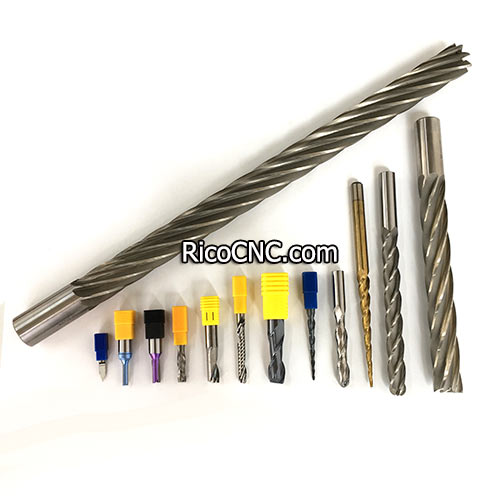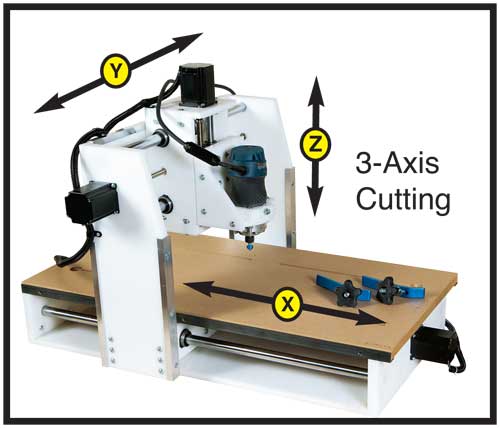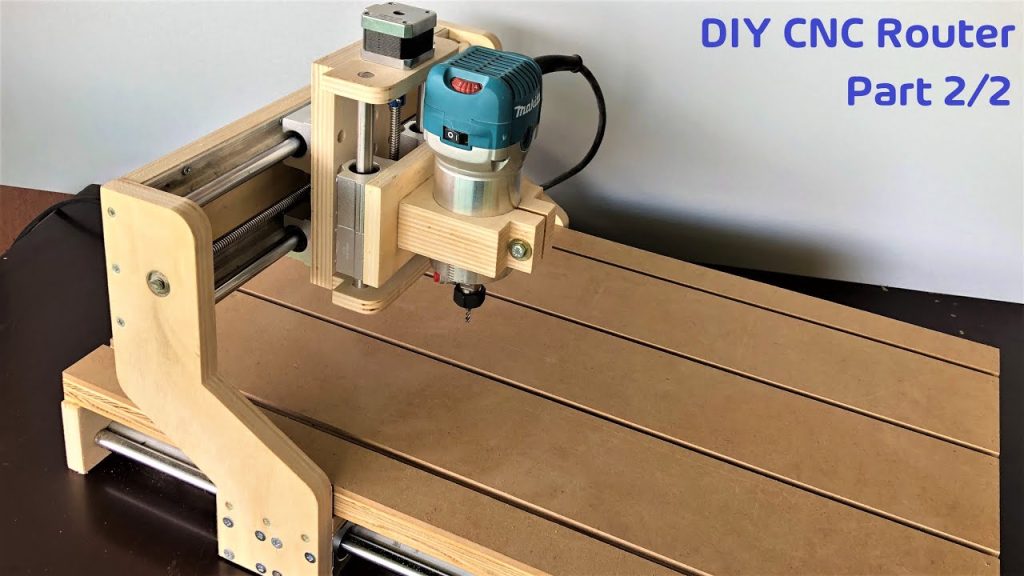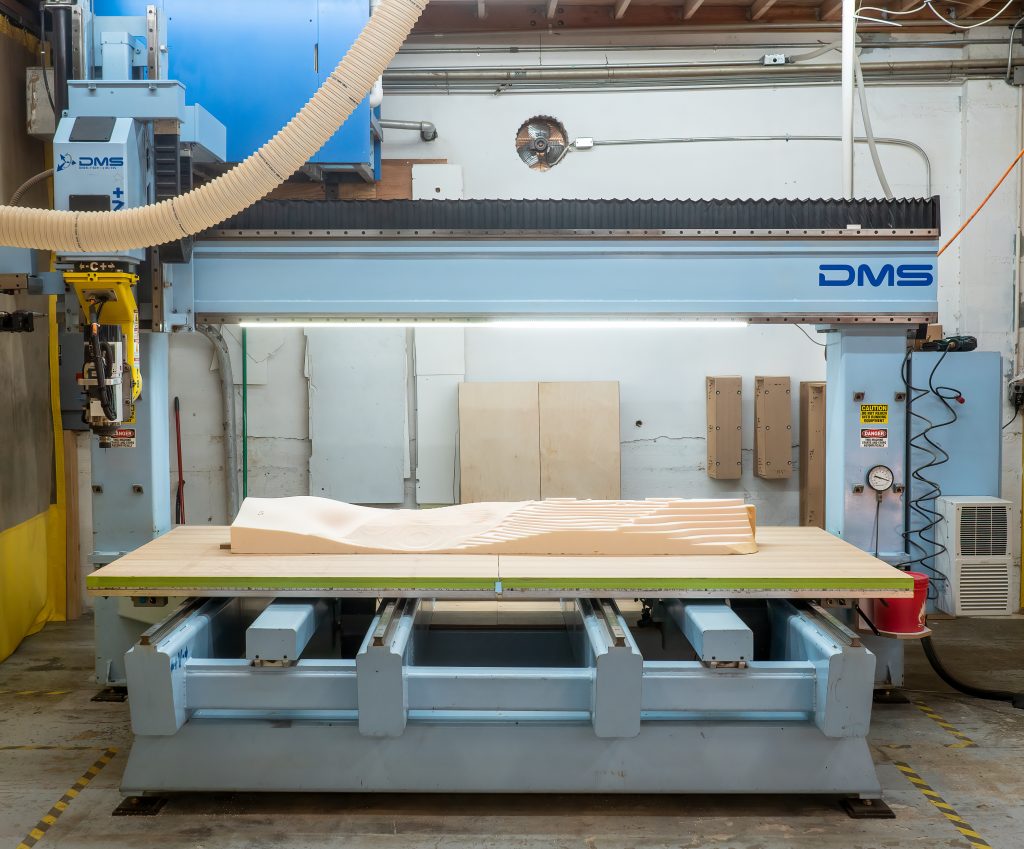Table of Contents
- Understanding CNC Router Bits
- Advantages of Using 4 Flute CNC Router Bits on Wood
- Disadvantages of Using 4 Flute CNC Router Bits on Wood
- Choosing the Right Router Bit for Woodworking
- Benefits of Using CNC Router Bits on Wood
- CNC Router Bits vs. Traditional Router Bits
- Conclusion
- Freequently Asked Questions
- Question 1: What are 4 flute CNC router bits?
- Question 2: Is it safe to use 4 flute CNC router bits on wood?
- Question 3: What are the advantages of using 4 flute CNC router bits on wood?
- Question 4: Are there any disadvantages of using 4 flute CNC router bits on wood?
- Question 5: What types of wood are best suited for 4 flute CNC router bits?
If you are a woodworker or a CNC router enthusiast, you may have wondered whether you can use 4 flute CNC router bits on wood. The answer is not a straightforward one, as it depends on several factors.
Firstly, it’s important to understand the purpose of the 4 flute design. These bits are typically used for materials like metal, plastics, and composites, as they provide a smooth finish and reduced chip load. However, they can also be used on wood, depending on the hardness of the wood and the desired finish. In this article, we will explore the factors that determine whether 4 flute CNC router bits can be used on wood and what kind of results you can expect.
Yes, you can use 4 flute CNC router bits on wood. They are designed to perform well on a variety of materials, including wood, plastic, and metal. The four flutes on the bit allow for smoother and more efficient cutting, leaving a clean and precise finish. However, it’s important to select the right type and size of bit for the specific wood you’re working with to achieve the best results.
Can You Use 4 Flute CNC Router Bits on Wood?
Understanding CNC Router Bits
CNC router bits are essential tools in woodworking that are designed to cut through different materials, including wood, metal, and plastic. The number of flutes on a router bit determines how smoothly it can cut through the material. A 4 flute CNC router bit has four cutting edges, making it ideal for cutting through hard materials like metal. But can you use it on wood?
Advantages of Using 4 Flute CNC Router Bits on Wood
Using 4 flute CNC router bits on wood has several advantages. Firstly, they can cut through wood more efficiently, reducing the amount of time it takes to complete a project. Secondly, they produce smoother cuts, which means less sanding and finishing is required. Finally, they have a longer lifespan compared to other types of router bits, making them a cost-effective option for woodworkers.
When using 4 flute CNC router bits on wood, it is important to choose the right type of bit for the job. For example, a straight flute bit is ideal for cutting straight lines, while a spiral flute bit is better for curved cuts. It is also important to adjust the speed of the router to match the type of wood you are working with.
Disadvantages of Using 4 Flute CNC Router Bits on Wood
While using 4 flute CNC router bits on wood has advantages, there are also some disadvantages to consider. Firstly, they can produce more sawdust and debris than other types of router bits, which can make the workspace messy. Secondly, they are not suitable for cutting intricate designs or patterns, as they can leave rough edges. Finally, they are more expensive than other types of router bits, so they may not be suitable for beginners or hobbyists.
Choosing the Right Router Bit for Woodworking
When choosing a router bit for woodworking, it is important to consider the type of wood you are working with, the desired cut, and the level of experience you have. For example, a beginner may want to start with a basic straight flute bit, while a more experienced woodworker may prefer a spiral flute bit for more intricate designs.
It is also important to consider the diameter of the router bit, as this will determine the size of the cut. A larger diameter bit will produce a wider cut, while a smaller diameter bit will produce a narrower cut. Additionally, the shape of the bit should match the desired cut, whether it is straight, curved, or angled.
Benefits of Using CNC Router Bits on Wood
CNC router bits have several benefits for woodworking, including precision, efficiency, and versatility. They can cut through wood with incredible accuracy, allowing for intricate designs and patterns. They are also efficient, reducing the amount of time it takes to complete a project. Finally, they are versatile, capable of cutting through a wide range of materials, including wood, metal, and plastic.
CNC Router Bits vs. Traditional Router Bits
CNC router bits differ from traditional router bits in several ways. Firstly, they are designed for use with computer-controlled routers, which allows for more precise cuts and designs. Secondly, they are made from harder materials, making them more durable and longer-lasting. Finally, they can be used on a wider range of materials, including metal and plastic.
Traditional router bits, on the other hand, are more suitable for hobbyists and beginners who are working on smaller projects. They are less expensive than CNC router bits and can produce satisfactory results for simple cuts and designs. However, they may not be suitable for more complex projects that require precision and accuracy.
Conclusion
In conclusion, using 4 flute CNC router bits on wood is possible and has several advantages, but it is important to choose the right type of bit for the job. Consider the type of wood, the desired cut, and your level of experience when choosing a router bit. Remember that CNC router bits are more expensive, but they are more durable and versatile than traditional router bits. With the right tools and techniques, you can achieve precise and intricate woodworking designs that are sure to impress.
Freequently Asked Questions
4 flute CNC router bits are commonly used in metalworking, but can they also be used on wood? Here are the top 5 questions and answers about using 4 flute CNC router bits on wood:
Question 1: What are 4 flute CNC router bits?
4 flute CNC router bits are cutting tools that have four flutes or cutting edges. They are commonly used in CNC milling machines to cut through metals such as aluminum, brass, and steel. However, they can also be used on wood, especially for cutting harder and denser types of wood.
Question 2: Is it safe to use 4 flute CNC router bits on wood?
Yes, it is safe to use 4 flute CNC router bits on wood as long as you use them properly. Make sure to adjust the cutting speed and feed rate of your router to match the type of wood you are cutting. It is also important to wear protective gear such as goggles and gloves to prevent injuries.
Question 3: What are the advantages of using 4 flute CNC router bits on wood?
The main advantage of using 4 flute CNC router bits on wood is their ability to cut through harder and denser types of wood. They also produce a smoother finish compared to other types of router bits. Additionally, they have a longer lifespan because of their four cutting edges, which means you don’t have to replace them as often.
Question 4: Are there any disadvantages of using 4 flute CNC router bits on wood?
One disadvantage of using 4 flute CNC router bits on wood is that they can produce a lot of heat during the cutting process, which can cause the wood to burn or scorch. To prevent this, make sure to use the correct cutting speed and feed rate, and also use a coolant or lubricant to reduce the heat generated.
Another disadvantage is that they can be more expensive compared to other types of router bits. However, their longer lifespan and better performance may make them worth the investment in the long run.
Question 5: What types of wood are best suited for 4 flute CNC router bits?
4 flute CNC router bits are best suited for harder and denser types of wood such as oak, maple, and cherry. Softer woods such as pine or cedar may not require the use of 4 flute router bits, and may even be damaged by them if used improperly. It is important to match the type of wood with the correct router bit to achieve the best results.
In conclusion, the answer to whether you can use 4 flute CNC router bits on wood is a resounding yes! These bits are designed to provide superior performance, accuracy, and consistency when cutting through hardwoods, softwoods, and engineered woods. With their advanced geometry, they are capable of producing smooth and clean cuts with minimal tear-out, reducing the need for sanding and finishing.
However, it is important to note that the suitability of 4 flute CNC router bits for wood will depend on several factors, including the type of wood, the thickness of the material, and the cutting speed and depth. It is recommended to experiment with different bits and settings to find the optimal combination for your specific project.
Ultimately, using 4 flute CNC router bits on wood can help you achieve precise and efficient cuts, making them a valuable tool for any woodworking project. So go ahead and give them a try, and see the difference they can make in your work!
Request a quote today!
[contact-form-7 id="1578" title="Contact form"]
Please compress the file into a ZIP or RAR file before uploading. Alternatively, send through your RFQ by email.
enquires@unitymanufacture.com





